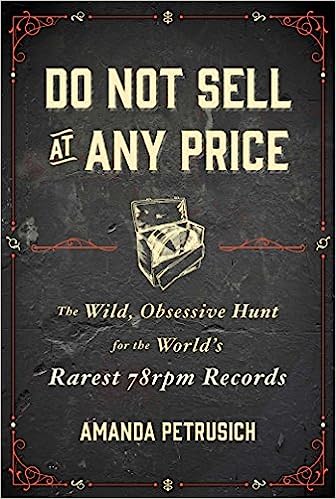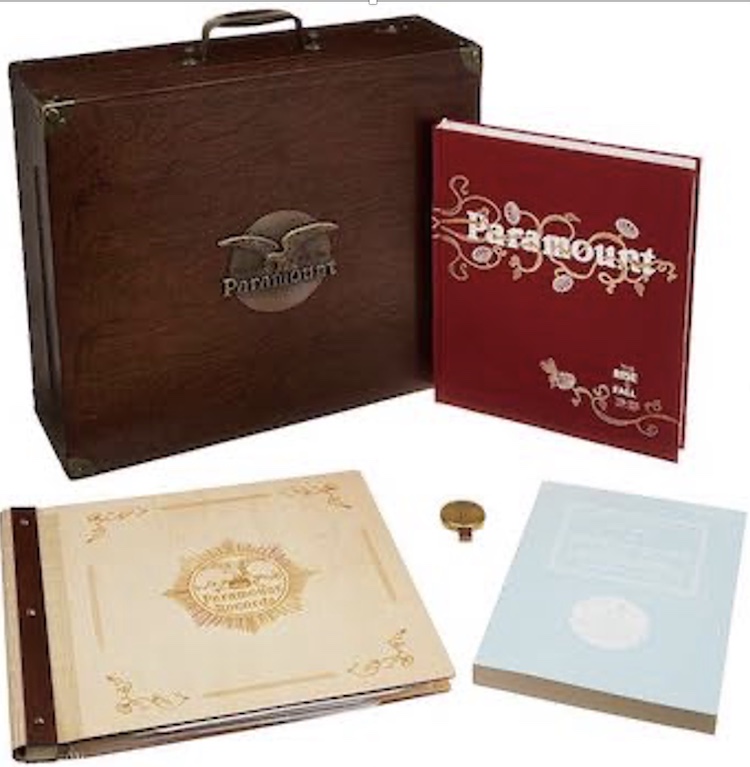John Marks’ Bookshelf for Lovers of Recordings #3
A DOZEN BOOKS REVIEWED, ONE A WEEK FOR THE NEXT TWELVE
Here are notes on a selection from my favorite books on the history of recording technology, the history of the record business, and the interactions between recording technology, the record business, and the art of music. One example of what I mean by all that is, in the late 1920s, piezoelectric “crystal” microphones supplanted carbon microphones for radio broadcasting.
Crystal microphones had a better signal-to-noise ratio than carbon microphones. Therefore, the live singers on radio could sing more quietly and intimately. They no longer had to shout to be heard. However, the quartz, mica, or other crystal elements were also more fragile than had been the carbon microphones. So, “shouters” like Al Jolson were out; and “crooners” like Rudy Vallee were in. (Trivia bit: Rudy Vallee graduated from Yale, with a degree in Philosophy.)
This list will be presented as a series of weekly installments. Rather than attempt to rank such diverse books from “Best” to “Somewhat Less Best,” this list is organized both chronologically and categorically. JM
The Bookshelf:
1. The Fabulous Phonograph, 1877-1977
2. The Label: The Story of Columbia Records
3. Do Not Sell at Any Price
4. The B Side: The Death of Tin Pan Alley and the Rebirth of the Great American Song
5. Something in the Air: Radio, Rock, and the Revolution That Shaped a Generation
6. Flowers in the Dustbin: The Rise of Rock and Roll, 1947-1977
7. Temples of Sound: Inside the Great Recording Studios
8. Goodnight, L.A.: The Rise and Fall of Classic Rock -- The Untold Story from inside the Legendary Recording Studios
9. Making Rumours: The Inside Story of the Classic Fleetwood Mac Album
10. Backstory in Blue: Ellington at Newport ‘56
11. A Love Supreme: The Story of John Coltrane’s Signature Album
12. The Vinyl Frontier: The Story of NASA s Interstellar Mixtape
Do Not Sell At Any Price- the Wild Obsessive Hunt for the World's Rarest 78rpm Records
by Amanda Petrusich
New York: Scribner; reprint edition 2015. Softcover, 304 pp. ISBN: 145166706X.

Supposedly, in order to sell a producer on your idea for a movie, you have to be able to explain the plot setup in no more than five words. One real-life example being, “Episcopal Priest Inherits Topless Bar.” Really. The five-word movie pitch for Do Not Sell at Any Price might be “Rock Chick Hunts Blues 78rpms.”
In the case of Amanda Petrusich, “hunt” is not a mere figure of speech. Ms. Petrusich was sucked so deeply into the vortex occupied by obsessive collectors of 78rpm Blues records (the title comes from a note she saw attached to one ultra-rare 78), that, despite her claustrophobia, she took scuba-diving lessons.
That was so that she could conduct her own underwater search of a river bed in Wisconsin. Why? Supposedly the P.O.’ed employees of Paramount Records, when the business shut down, had thrown the production stampers into the river. If that label name rings a bell, that might be because contemporary musician Jack White organized the reissue of most of the Paramount catalog in the famous “Paramount Suitcase” projects.

Petrusich’s road-trip narratives strongly call to mind the road-trip narratives of Hunter Thompson. Yes—she’s that good. Here’s an example, chosen almost at random:
Approach a 78 collector with some mundane or particularly commonplace 78 – “Yes! We Have No Bananas” say – and request to store it amid his collection, and he will glower at you as if you have announced you intend to slowly disfigure his face with a fork.
She is also both empathetic, and critically aware. There are lots of weird stories, and a few sad stories, not all of them about Blues musicians. 78rpm collectors do seem to be in the Melancholic and Phlegmatic quadrants, regarding Temperaments. (I had not known that Blues authority and fingerstyle guitarist John Fahey had lived out his last years as a morbidly-obese recluse, staying in welfare hotels.)
Petrusich is bold enough, toward the end of her narrative, to question why it should have been the case that the contents of the “canon” of Blues music was established for the most part by lonely middle-aged, often overweight, socially-awkward Caucasian males. (She even wonders about possible connections among testosterone, OCD, and record collecting.)
The importance of the question of the legitimacy of the extant “canon” of Blues music is that, it was “curated” (Dear Lord, how I hate that word!) LP-reissue compilations of original Blues recordings that were the means of transmission of the US Blues legacy to impressionable young British musicians. The results included the formation of bands such as the Bluesbreakers, the Yardbirds, Led Zeppelin, and the original Fleetwood Mac.
One path to writing a great non-fiction book is to write about something most people already know about, but with a new approach that is strikingly valid. Another path is to write about something that is terribly obscure, but in such a compelling manner that almost anyone will be drawn in. Do Not Sell at Any Price is that latter kind of a book. Highest recommendation.











































